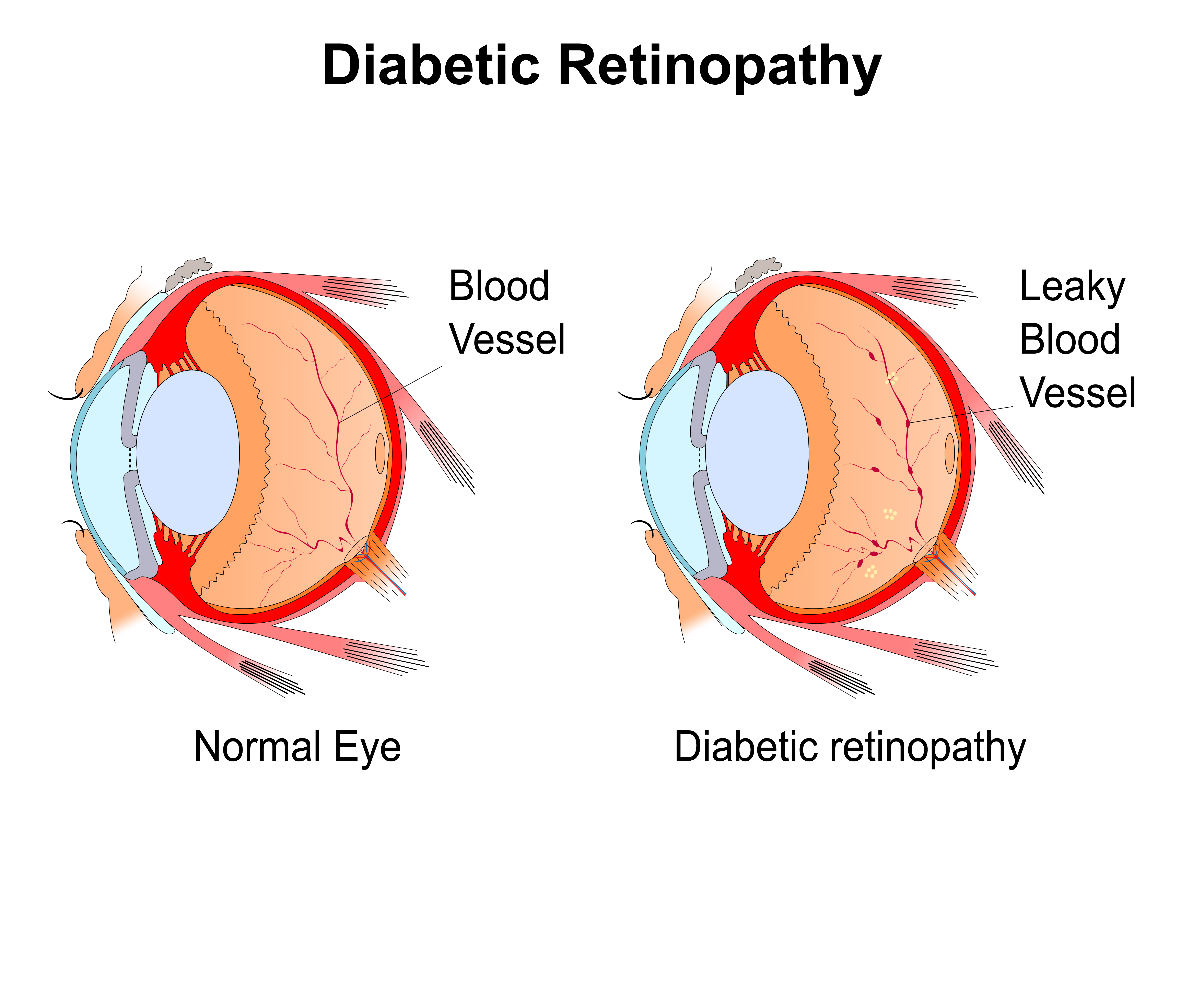
34 million Americans live with diabetes. Diabetes can impact multiple health systems in the body including eyesight and eye health.
Diabetic Retinopathy is a complication of diabetes where high blood sugar levels damage the blood vessels in the retina and is the leading cause of new-onset blindness. This condition can cause blurred vision, floaters and vision loss which can lead to blindness if not treated. While these complications can most often affect older patients, they can affect younger people in their teens and twenties as well.
According to the National Eye Institute, Diabetic retinopathy has four stages:
- Mild non-proliferative retinopathy: At this early stage, small areas of balloon-like swelling occur in the retina’s tiny blood vessels.
- Moderate non-proliferative retinopathy: As the disease progresses, some blood vessels that nourish the retina become blocked.
- Severe non-proliferative retinopathy: Many more blood vessels become blocked, which disrupts the blood supply that nourishes the retina. The damaged retina sometimes then signals the body to produce new blood vessels.
- Proliferative retinopathy: At this advanced stage, signals sent by the retina trigger the development of new blood vessels that grow (or proliferate) in the retina and the vitreous, which is a transparent gel that fills the interior of the eye. Because these new blood vessels are abnormal, they can rupture and bleed, causing hemorrhages in the retina or vitreous. Scar tissue can develop and can tug at the retina, causing further damage or even retinal detachment.
The CDC recommends these eye health practices to diabetics, both for control of vision problems and to slow worsening eyesight:
- Schedule a comprehensive eye exam annually getting the recommended yearly dilated eye exam.
• Keep blood sugar levels in your target range – over time, high blood sugar not only damages blood vessels in your eyes; It can also cause large fluctuations in your glasses and contact lens prescriptions.
• Keep blood pressure and cholesterol levels in your target range to lower your risk of diseases and vision loss.
• Quit smoking.
• Exercise and be active. Physical activity protects your eyes and helps you manage diabetes.
• Educate your family and friends. Preventing vision loss and blindness is a leading public health challenge.
If you or someone you know is experiencing vision loss, contact us 570-323-9401.






